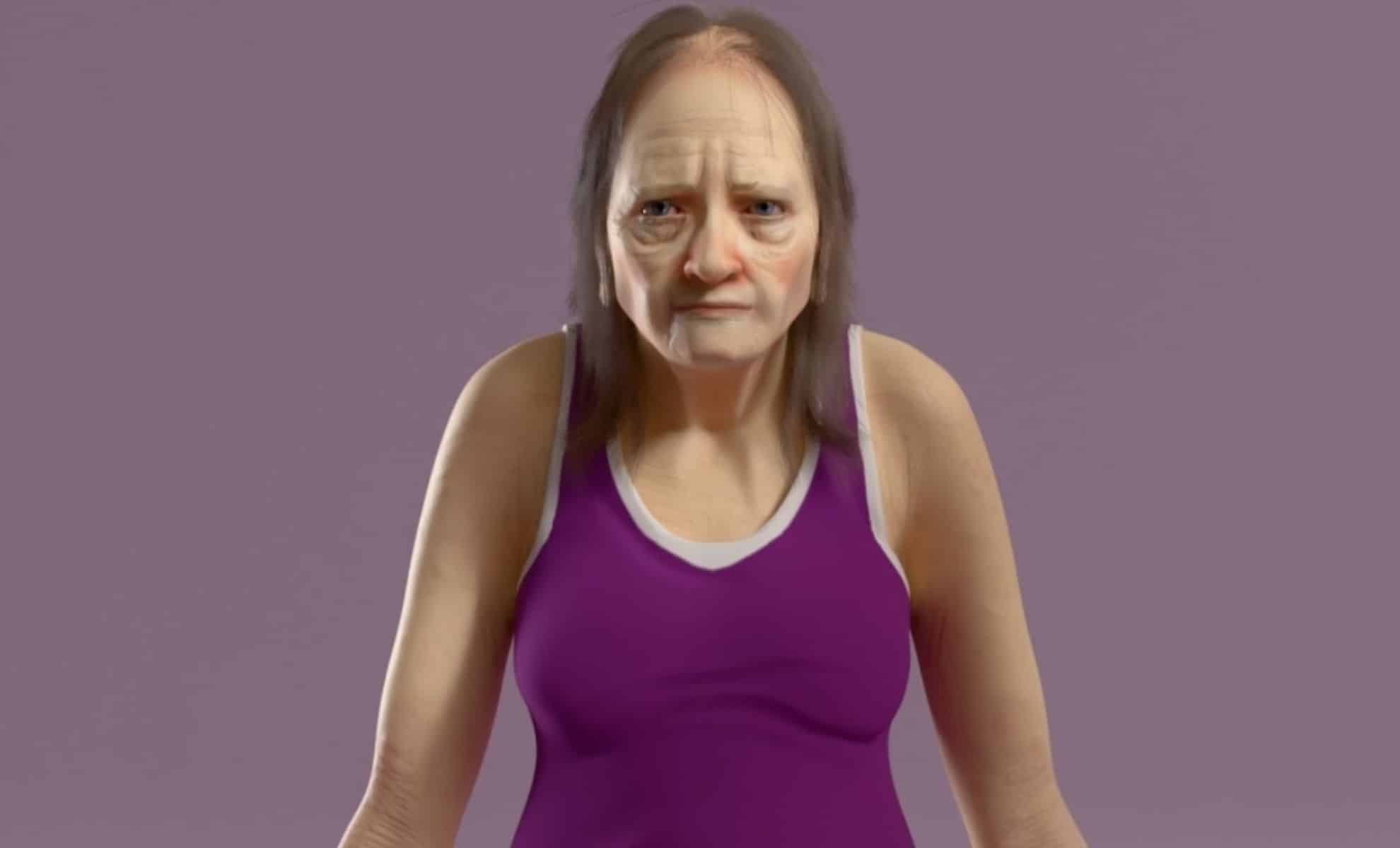In an age where late nights and early mornings have become routine, sleep is increasingly viewed as a luxury, rather than a fundamental need. This trend of global sleep deprivation has prompted experts to raise concerns about the severe impact our habits may have on our health and appearance by 2050. A recent study provides a compelling visual of such a future, illustrating the long-term ramifications of insufficient rest.
A Dismaying Vision of the Future
Dr. Sophie Bostock, a sleep specialist, collaborated with Bensons for Beds on a notable project that offers a troubling visual representation of what a woman might look like in 2050 if she continues to neglect her sleep. The model, named Hannah, is based on data from 19 studies published since 2010.
These studies have examined the detrimental effects of sleep deprivation on various bodily systems, including the brain, immune system, and skin. The resulting visual projection is a chilling forecast of the consequences of persistent poor sleep habits.
Hannah is not merely a fictional creation; she is designed to serve as a cautionary figure. Dr. Bostock remarked, “The research on the importance of regular, high-quality sleep for our health has accelerated in recent decades. Many people don’t realize that disorganized daily routines and a lack of sleep disrupt our circadian rhythms, the 24-hour cycles that govern our physiology.” The purpose of this initiative is to underscore the significant consequences of chronic sleep deprivation as part of our daily lives.
A Representation of Health Decline Due to Sleep Deprivation
The long-term consequences of inadequate sleep become clear when examining Hannah’s projected health. She faces an increased risk of memory loss, with both her short- and long-term memory suffering severely. Hair loss, often linked to stress and poor health, has also been a consequence of her chronic rest deficiency. Additionally, her skin exhibits marked signs of aging, such as fine lines, wrinkles, and a lack of elasticity.
Hannah’s eyes reflect the toll of sleep deprivation, showcasing puffy eyelids, dark circles, and sagging skin around the mouth. The effects extend to her immune system, which is weakened, rendering her more prone to common illnesses like colds and flu. Moreover, her experience includes chronic pain, particularly in her back and shoulders.
Even more concerning is Hannah’s weight gain. With just six hours of sleep per night, her hormonal balance is disrupted, diminishing her ability to feel full. This imbalance affects hormones like leptin and ghrelin, leading to increased appetite and nighttime snacking. The lack of rest also contributed to her cessation of exercise, resulting in heightened body fat.
Strategies to Break the Cycle
Hannah’s disturbing portrayal serves as a potent reminder and a call to action. To counteract the adverse effects illustrated, experts recommend prioritizing sleep by aiming for seven to nine hours of quality rest each night. A conducive sleep environment—eliminating distractions such as screens, caffeine, and noise—can significantly enhance sleep quality.
Dr. Bostock stresses the importance of maintaining a consistent sleep routine. “A regular sleep schedule helps stabilize your biological clock, improving both the efficiency and quality of your sleep,” she stated. Additionally, mindfulness about evening activities is key. Steering clear of heavy meals, alcohol, or nicotine before bedtime can foster deeper, more restorative sleep.

